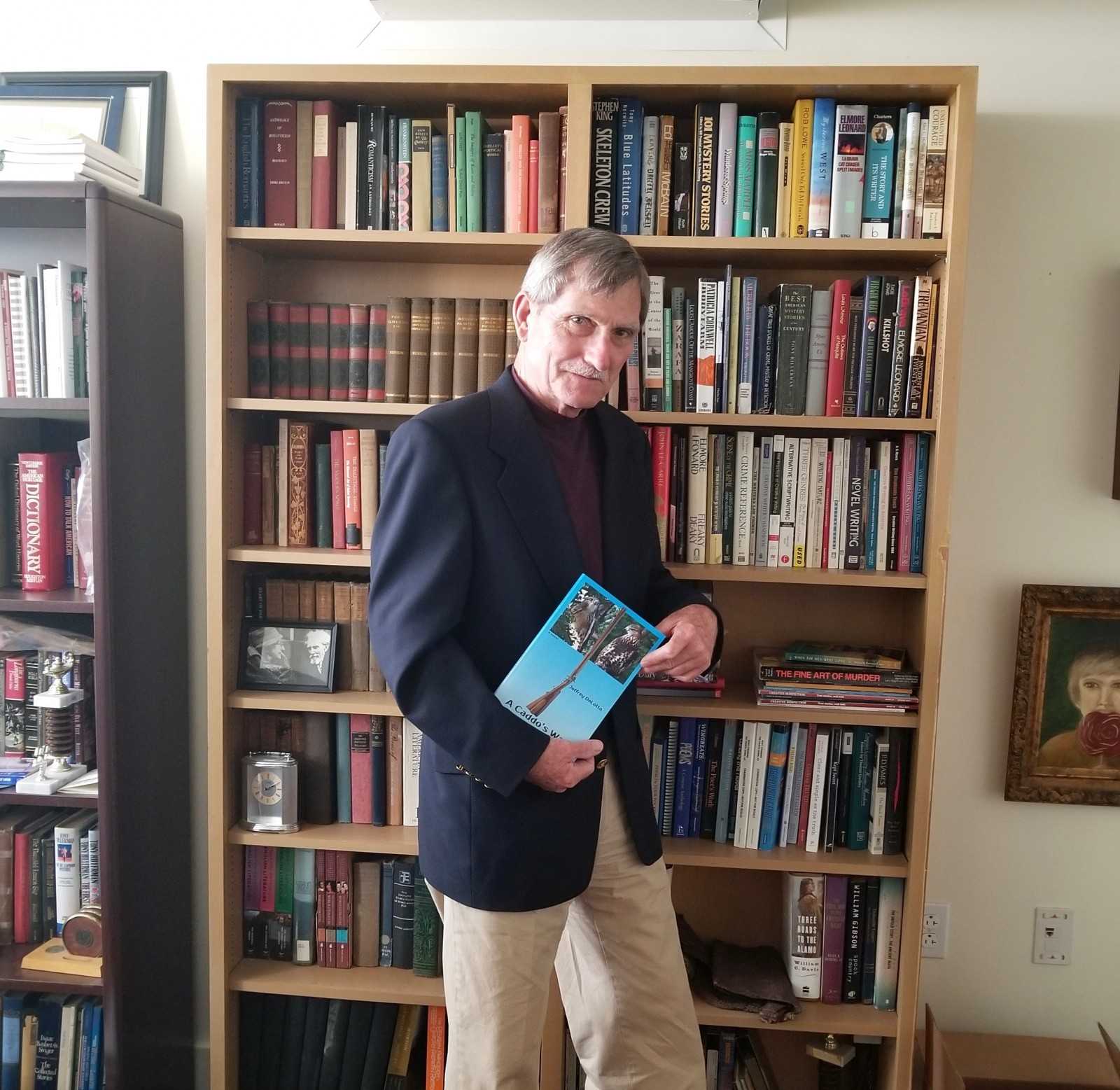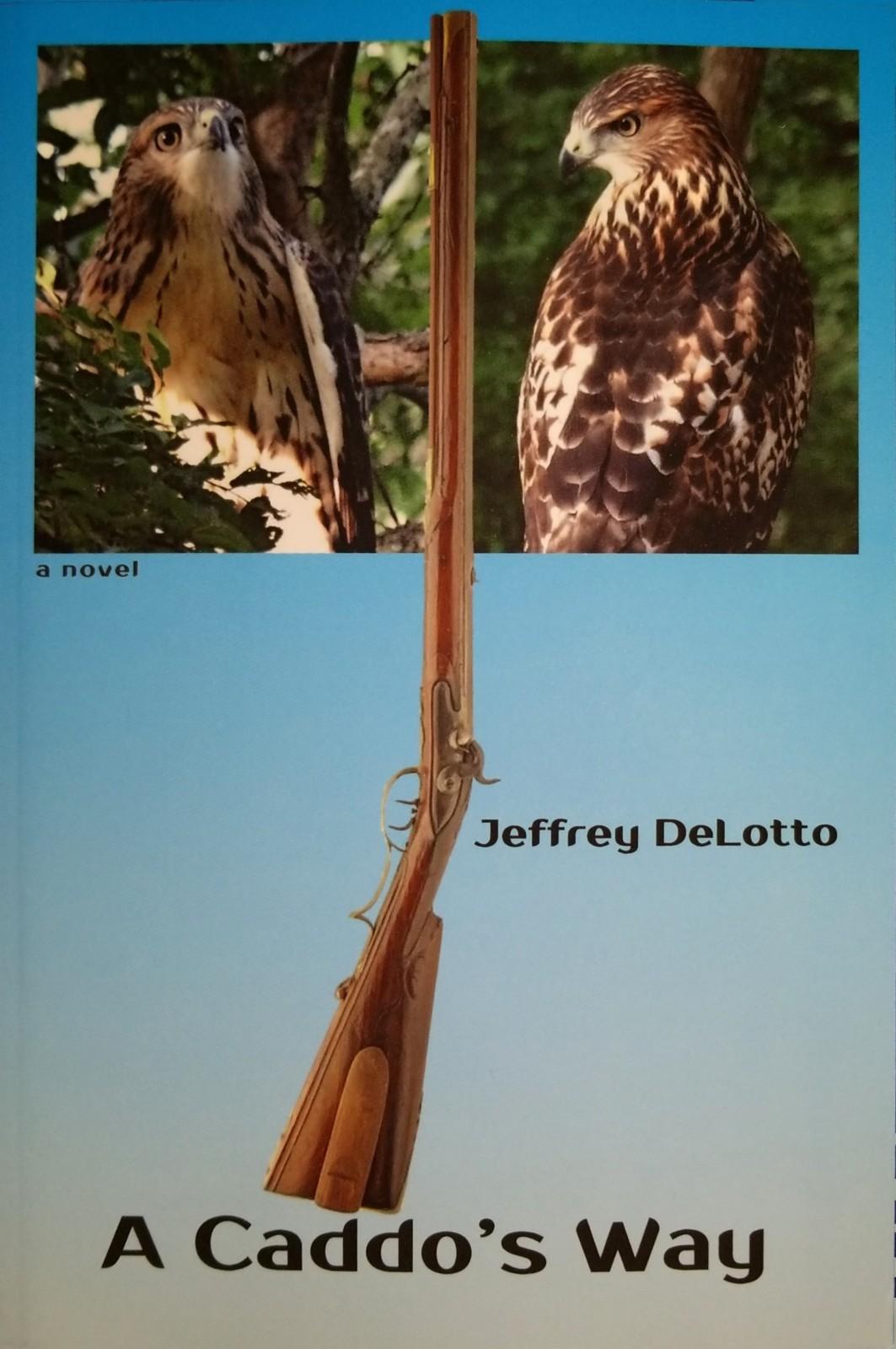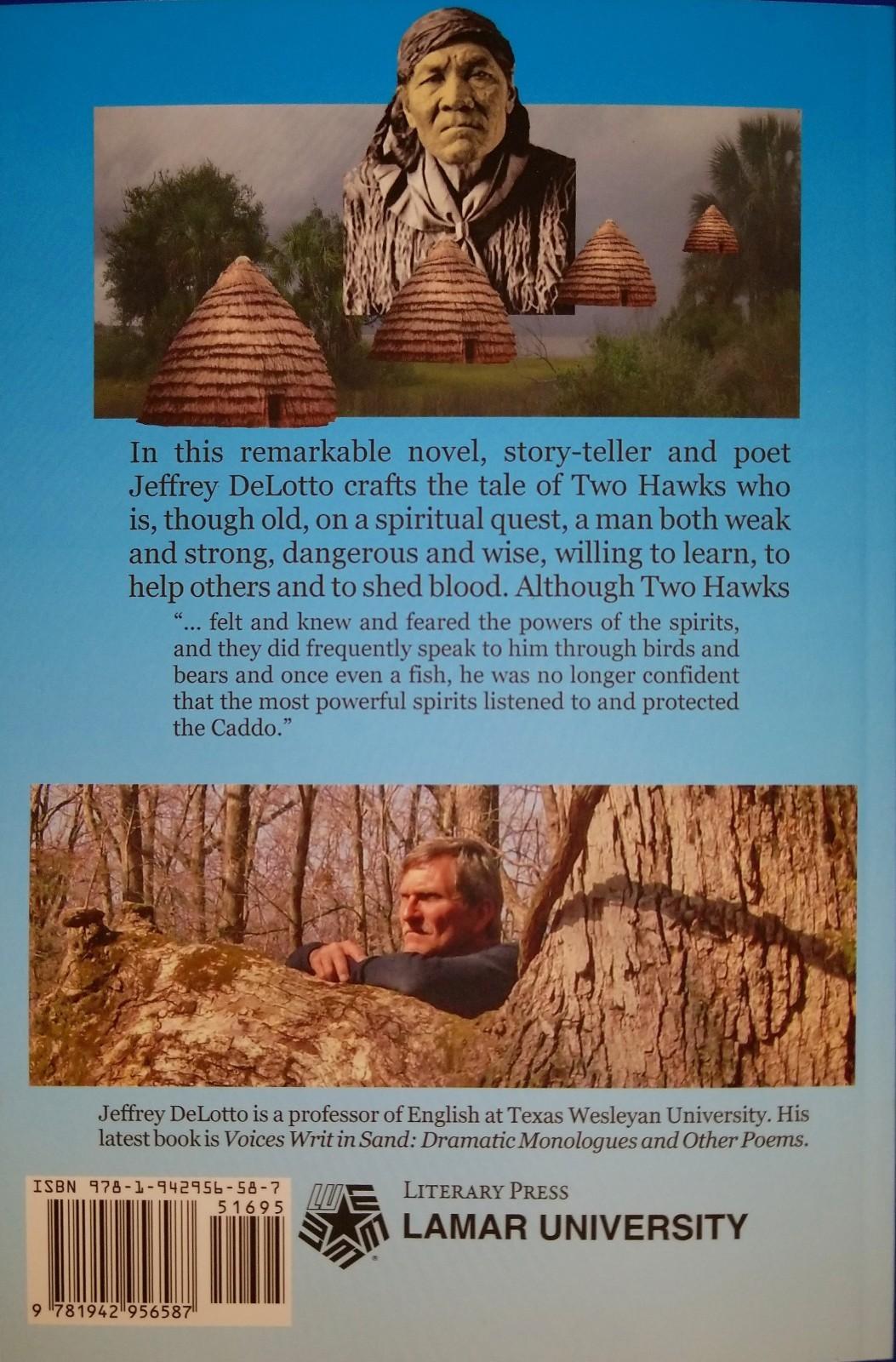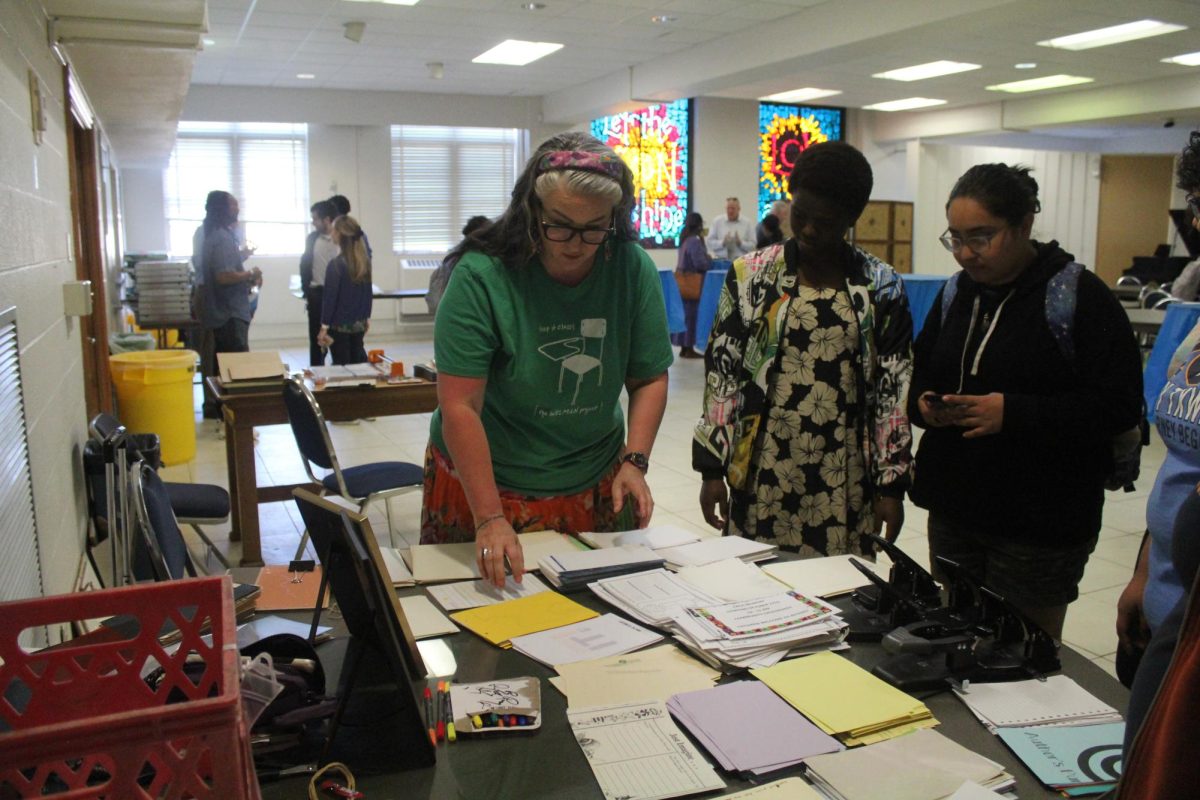Dr. Jeffrey DeLotto was be able to check “publish novel” off his to-do list after publishing his first novel, “A Caddo’s Way,” in October 2018.
DeLotto said was inspired to write about the Caddo Indians after a visit to Caddo Mounds State Historic Site in Alto, south of Tyler.
“They had some mounds there from the ancient Caddos,” he said. “I got hooked on the Caddos so I started learning more about them.”
DeLotto said that since he wanted to teach a course on writing a short story, and doesn’t “believe in teaching something that [he] hasn’t done,” he decided to explore short fiction and start writing a story.
“I decided to use as a fictional character an old Caddo in the early part of the 19th century because I knew historically quite a bit about that period,” he said. “I wrote a short story about this Caddo named Two Hawks.”
He read the short story at some conferences, had it published, and wrote another story about Two Hawks.
“A few years later, when I read the story at a conference, one of my colleagues who teaches at Lamar University said, ‘You know, I really like this Caddo Two Hawks. I’d like to read more about him,’” DeLotto said. “I thought ‘maybe I should’ so I decided to write it.”
He said that after collecting information for a couple of years, he asked the university for a sabbatical so he could focus on writing his novel.
DeLotto said he did most of his writing during the semester-long break he was granted.
“I very quickly discovered that I can’t write at home,” he said. “I need to write in places where I don’t have anything else to do. When I was writing the novel, I decided that the best thing for me to do was to remove myself and go somewhere else where I didn’t have any other excuse except write.”
Not wasting any of his break, he started visiting a Starbucks in Grapevine.
“I got there usually by eight o’clock,” he said. “I got my cup and writing pads, and for at least the next two to two and a half hours, I would not do anything except write. I kept to that regimen at least five days a week, sometimes six.”
DeLotto said he would frequently start thinking about where his character, Two Hawks, was going to go in the story.
“I didn’t know that he was going to go there, but once I started writing, it just seemed like that is where he wanted to go,” DeLotto said. “Those times were really magical for me because it was like I was writing as fast as I could to catch up with what he was doing. He had kind of developed a life of his own.”
DeLotto said he did a lot of research before starting the writing process, especially since the story takes place in the early 1820s.
“It is set in a place that American historians probably know enough about that if I slipped up they would know,” he said.
DeLotto said his wife got to the original ending he had given the novel and cried.
“She said, ‘You can’t have it that way,’” DeLotto said. “I looked at it and thought about it. I thought ‘Well, maybe she has a point,’ so I changed a little bit of the ending. I think it’s a better story now.”
DeLotto said people will enjoy reading about Two Hawks.
“I think people will enjoy the character and will learn something about a particular part of history,” he said. “One of the characteristics that has always drawn me to writing historical fiction is that it takes history and it makes it individual so it brings it to life. It is about a period in Texas-Louisiana history that not very many people know much about.”
Dr. Marilyn Pugh, an associate professor of psychology who has read the novel, wrote in an email that she found the writing to be beautifully descriptive.
“His characters, especially the protagonist Two Hawks, were compelling,” she wrote. “I very much enjoyed the elements from Native American culture (although I am not an expert on this topic).”
She wrote that DeLotto addressed spiritual and cognitive factors in much more detail in comparison to other books in the Western fiction genre.
“I was extremely disappointed with the ending, but only because it was the ending–I wanted much more!” she wrote. “I hope he plans to write a sequel, because I want to know what happens next (at least in DeLotto’s brilliant imagination).”
Dennis Miles, a reference and instruction librarian at the Eunice & James L West Library, wrote in an email that he has read the first 50 pages of the novel.
“I can tell you that Dr. DeLotto has crafted the tale of a Caddo Indian, Two Hawks, struggles between his own Caddo culture and beliefs, which was vanishing, and the ways of the encroaching European, the Spanish and French and American,” he wrote. “DeLotto has incorporated much of the history of early Texas with the traditions of the Caddo religion and culture.”
Miles was able to apply some of his knowledge on how Europeans treated the Indian while he read “A Caddo’s Way.”
“The truth is, the European in general, treated the Indian as a second-class citizen at best, and this is shown in this book,” he wrote. “Dr. DeLotto has created a very interesting tale that at times reads like a detective novel with Two Hawks’ ability, through this Caddo beliefs, to solve crimes and other problems.”
Miles wrote that the novel should be read by everyone to gain knowledge.
“This is a very enjoyable book and should be read by everyone to gain a better understanding of the struggles of the American Indian during the time of European encroachment in the 19th century and even today,” he wrote.
“A Caddo’s Way” is available on available on Amazon and Barnes & Noble, and available for check out at the West Library.

Photo by Elena Maldonado

Photo by Elena Maldonado

Photo by Elena Maldonado









![Pippin, played by Hunter Heart, leads a musical number in the second act of the musical. [Photo courtesy Kris Ikejiri]](https://therambler.org/wp-content/uploads/2025/04/Pippin-Review-1200x800.jpg)
![Harriet and Warren, played by Trinity Chenault and Trent Cole, embrace in a hug [Photo courtesy Lauren Hunt]](https://therambler.org/wp-content/uploads/2025/02/lettersfromthelibrary_01-1200x800.jpg)
![Samantha Barragan celebrates following victory in a bout. [Photo courtesy Tu Pha]](https://therambler.org/wp-content/uploads/2025/05/20250504_164435000_iOS-834x1200.jpg)





![Hunter Heart (center), the play's lead, rehearses a scene alongside other student actors. [Photo courtesy Jacob Sanchez]](https://therambler.org/wp-content/uploads/2025/04/thumbnail_IMG_8412-1200x816.jpg)
![Student actors rehearse for Pippin, Theatre Wesleyan's upcoming musical. [Photo courtesy Jacob Rivera-Sanchez]](https://therambler.org/wp-content/uploads/2025/04/Pippin-Preview-1200x739.jpg)
![[Photo courtesy Brooklyn Rowe]](https://therambler.org/wp-content/uploads/2025/05/CMYK_Shaiza_4227-1080x1200.jpg)

![Lady Rams softball wraps up weekend against Nelson Lions with a victory [6 – 1]](https://therambler.org/wp-content/uploads/2025/04/Screenshot-2025-04-04-100924-1200x647.png)
















